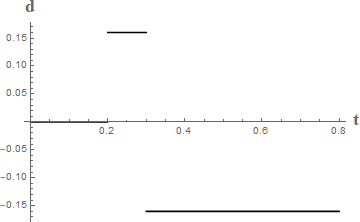Consider a Bernoulli distribution with mean $\mu \in (0,1)$ taking values in the set $\{0,1\}$. Suppose we draw $t \in \mathbb{N}$ independent and identically distributed (i.i.d.) samples from this distribution, and denote them with $\{X_1, X_2, \ldots, X_t\}$. For two natural numbers $t_1 < t_2$, consider the empirical means $\hat{\mu}_1 = \frac{1}{t_1} \sum_{s=1}^{t_1} X_s$ and $\hat{\mu}_2 = \frac{1}{t_2} \sum_{s=1}^{t_2} X_s$ constructed with $t_1$ and $t_2$ i.i.d. samples respectively.
Informally, it seems to me that $\hat{\mu}_2$ is closer to the true mean $\mu$ since it contains more information. I would like to know if there exist formal results along this line. More specifically, can I say:
- Does $|\hat{\mu}_1 - \mu|$ have first-order stochastic dominance over $|\hat{\mu}_2 - \mu|$? One way that occurs to me is to compare an upper bound on the tail of $|\hat{\mu}_2 - \mu|$ with a lower bound on the tail of $|\hat{\mu}_1 - \mu|$ to obtain sufficient conditions for the dominance result to be true. However, I don't think that result would hold for all $t_1, t_2$.
- If instead of natural numbers $t_1$ and $t_2$, I consider two random variables $T_1$ and $T_2$ taking values in $\mathbb{N}$ such that $T_1 < T_2$ almost surely, does the result of Q1. carry over to this case.
Any pointers to literature or books would be great. Thanks.

